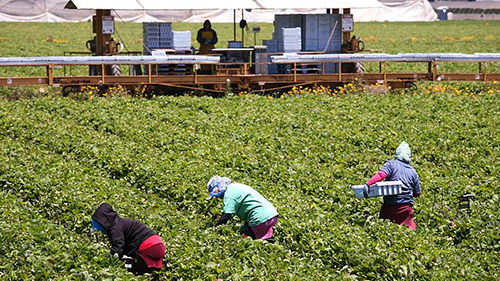Nov 11 2015 Partnership for Freedom offers prize for innovative efforts addressing labor trafficking
 According to the International Labor Organization (ILO), 14.2 million people are victims of forced labor in private economic activities. In labor trafficking situations, victims are coerced to work against their will either under the threat of violence or intimidation, or through more subtle means such as accumulated debt or retention of identity papers. Today, technology plays a complex role in labor trafficking. A recent report on technology and labor trafficking found that “isolation from the technologies and social networks that connect individuals to support and services is an indicator and risk factor for labor trafficking,” while new information and communication technologies are a central component of networks that enable labor trafficking. An interest in advancing technological solutions to labor trafficking has brought together public and private partners to launch Rethink Supply Chains: The Tech Challenge to Fight Labor Trafficking, offering $500,000 in prizes.
According to the International Labor Organization (ILO), 14.2 million people are victims of forced labor in private economic activities. In labor trafficking situations, victims are coerced to work against their will either under the threat of violence or intimidation, or through more subtle means such as accumulated debt or retention of identity papers. Today, technology plays a complex role in labor trafficking. A recent report on technology and labor trafficking found that “isolation from the technologies and social networks that connect individuals to support and services is an indicator and risk factor for labor trafficking,” while new information and communication technologies are a central component of networks that enable labor trafficking. An interest in advancing technological solutions to labor trafficking has brought together public and private partners to launch Rethink Supply Chains: The Tech Challenge to Fight Labor Trafficking, offering $500,000 in prizes.
U.S. government agencies and private partners working together as the Partnership for Freedom are offering an innovation challenge calling for technological solutions identifying and addressing labor trafficking in global supply chains for goods (such as minerals, seafood, and palm oil) and services (including forms of migrant labor). Government partners include the Department of Justice, the Department of Health and Human Services, the Department of Housing and Urban Development, the Department of State, and the Department of Labor. Private and non-profit partners include Steven Spielberg’s Righteous Persons Foundation, the Goldman Sachs 10,000 Women Initiative, the Ray and Dagmar Dolby Family Fund, and Humanity United.
“To solve this problem, we must find new ways to work together across traditional silos – among business and community groups; with survivors; across borders, regions, and localities; and between faith, class and neighborhood lines.”
The multi-layered and often opaque nature of supply chains calls for innovative solutions, which the Rethink Supply Chains challenge hopes to elicit. The complexity of this issue lends itself well to intersector collaboration, an idea that the Partnership for Freedom highlights on its website in describing its approach: “We want to see new players, new skills, new ideas, and new energy enter the anti-trafficking conversation. To solve this problem, we must find new ways to work together across traditional silos – among business and community groups; with survivors; across borders, regions, and localities; and between faith, class and neighborhood lines.”
Rethink Supply Chains is the second of the Partnership for Freedom’s three innovation challenges, the first of which was a competition to improve the infrastructure of support for survivors of labor trafficking. One of the winners of this challenge was the Safe Shelter Collaborative, a partnership between Polaris Project, the New Jersey Department of Children and Families, and Caravan Studios to increase access to supportive shelters for survivors. It’s promising to see that not only is the origin of the challenge cross-sector in nature, but also that the winning innovation recognizes the value of collaborating and bridging silos.
Initial submissions for Rethink Supply Chains will be accepted until December 13, 2015, and submissions are encouraged to focus on one or more of the following areas: Workers’ Voices, Recruitment, and Traceability. We will be following the outcome of this public-private partnership with great interest.
